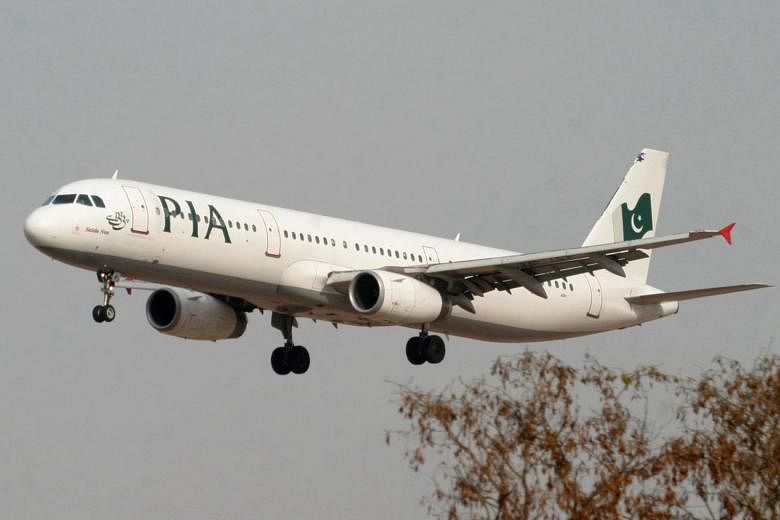ISLAMABAD (DAWN/ASIA NEWS NETWORK) - Pakistan's commercial aviation industry is embroiled in a scandal unprecedented in scope.
Indeed, the affair of the pilots' dubious licences has even eclipsed the findings in the preliminary investigation report of the PK-8303 crash.
Minister for Aviation Ghulam Sarwar Khan's stunning admission on Wednesday (June 24) that of 860 pilots, 262 had appeared in exams through proxies has left not only this country but the world aghast.
On Friday (June 26), Mr Khan gave further details. Of the 860, he said, 753 were working in Pakistan and an inquiry is underway into their suspect credentials, while the rest are flying for foreign airlines.
No less than 450 of the 743 are working in Pakistan International Airlines (PIA); the remaining are employed by local private airlines, flying clubs, etc.
According to him, the 262 pilots found to have taken exams through proxies have been indicted by a board of inquiry and will be barred from flying.
The opposition has roundly condemned the minister for bringing these facts into the open. While this will admittedly have a grievous impact on the country's aviation industry, the public has a right to make an informed choice when it opts to take to the skies.
Meanwhile, the International Air Transport Association has expressed concern over the "serious lapse in the licensing and safety oversight by the aviation regulator" - and rightly so.
The Civil Aviation Authority (CAA) is solely responsible for licences issued to all pilots receiving their training in Pakistan.
Moreover, every airline selects instructors from within the pilots employed by it, who are then approved by the CAA, and the final check flight is monitored by a CAA inspector. In that respect, every licence issued by the CAA is 'genuine'.
The 'dubiousness' lies in the fact that certain elements within the CAA, particularly in its licensing and IT departments, have gone beyond international regulatory guidelines to deliberately queer the pitch so as to make the examination procedure perverse and convoluted.
The option to take recourse to unfair means thus becomes that much more tempting, enabling pilots to 'pass' the exam while corrupt CAA personnel line their pockets.
This is not to say that the pilots are blameless, but the buck stops with the regulatory authority.
The PK-8303 tragedy has opened a can of worms: a thorough overhaul is called for, both in PIA and the CAA.
Besides the licensing fiasco, there is also the issue of what becomes of investigations into air accidents, and not only the ones that have claimed lives. There have also been several non-fatal incidents in recent years in which inquiries, if begun at all, have been mothballed. Why?
To cite but one example, an ATR-42 skidded off the runway at Gilgit airport in July last year. Thankfully, all passengers remained safe, but the aircraft had to be written off. The CAA has much to answer for.
Dawn is a member of The Straits Times media partner Asia News Network, an alliance of 24 news media organisations.

